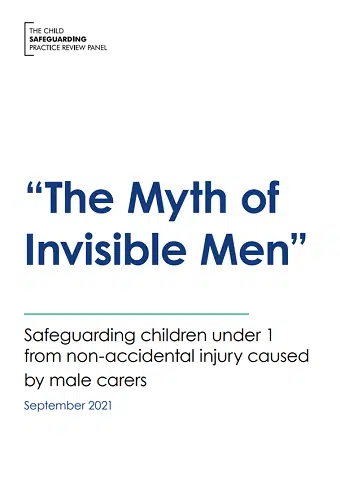17th September 2021
The publication of yesterday’s hard hitting national review, “The Myth of Invisible Men”, by the independent Child Safeguarding Practice Review Panel, provides a stark reminder that babies are being let down in this country and, for some, the consequences are catastrophic and life-changing.
Alison Morton, Executive Director iHV, said:
“This hard hitting report highlights yet again that babies pay the ultimate price for the failings in the systems designed to safeguard and protect them. Babies cannot speak – they rely on the adults around them to protect them and, when this is not possible or their parents need additional help and support, they need to live in a world where there are skilled professionals who can spot their distress and step in to help. This is why we are calling on the Government to invest in health visiting as a vital safety net for babies and young children.”
The report highlights that 35% of all serious incident notifications involve serious harm to babies, the vast majority involving physical injury or death. This is the biggest category of all notifications that the Panel sees. In the majority of cases where babies have been injured or killed, men are the perpetrators – research suggests that men are between 2 and 15 times more likely than women to cause this type of harm in under 1s. The greater prevalence of male abusers sits alongside a description of men as too often being ‘hidden’ or ‘invisible’ to safeguarding agencies.
The review focuses on non-accidental injury (NAI) in infants under the age of 1 and seeks to answer the following questions:
- ‘How well does the safeguarding system understand the role of the father/male carer?’
- ‘How can the safeguarding system be more effective at engaging, assessing and planning for and with men in the protection of children (or those for whom they have a parenting responsibility)?’
The review concludes that there is “an urgent need to improve how the system sees, responds to and intervenes with men who may represent a risk to the babies they are caring for. For this group of men, the role that they play in a child’s life, their history of parenting and their own experiences as children and how this effects them as adults, are too frequently overlooked by the services with responsibilities for safeguarding children and for supporting parents.”



